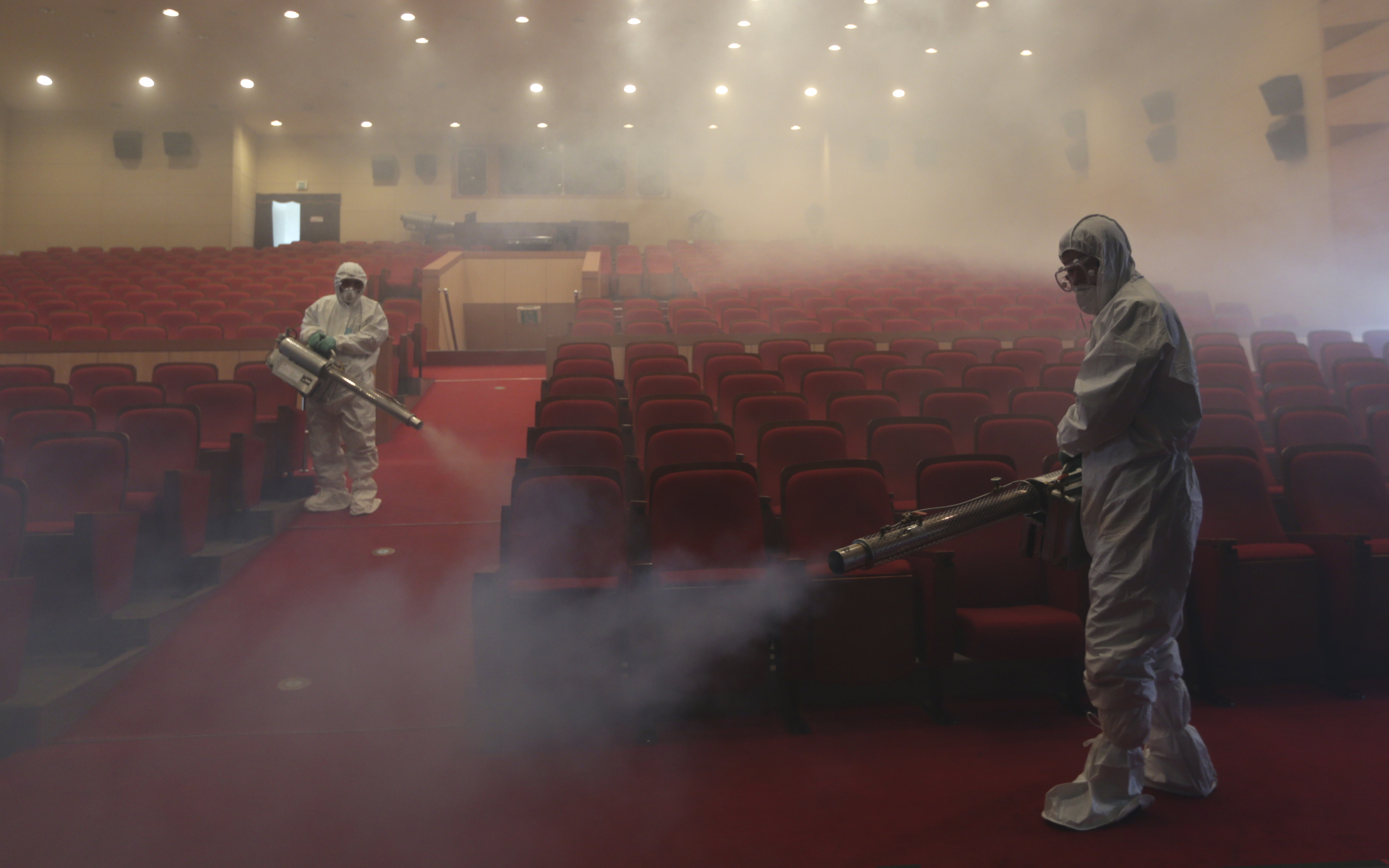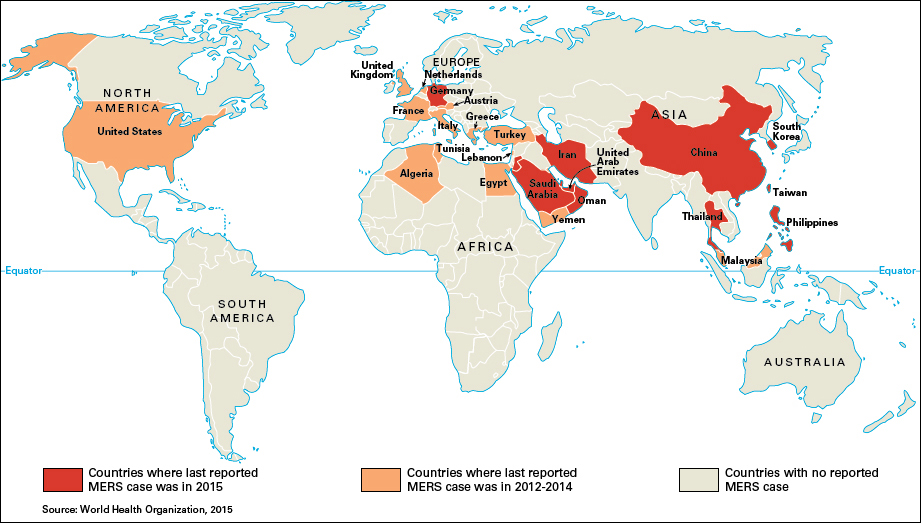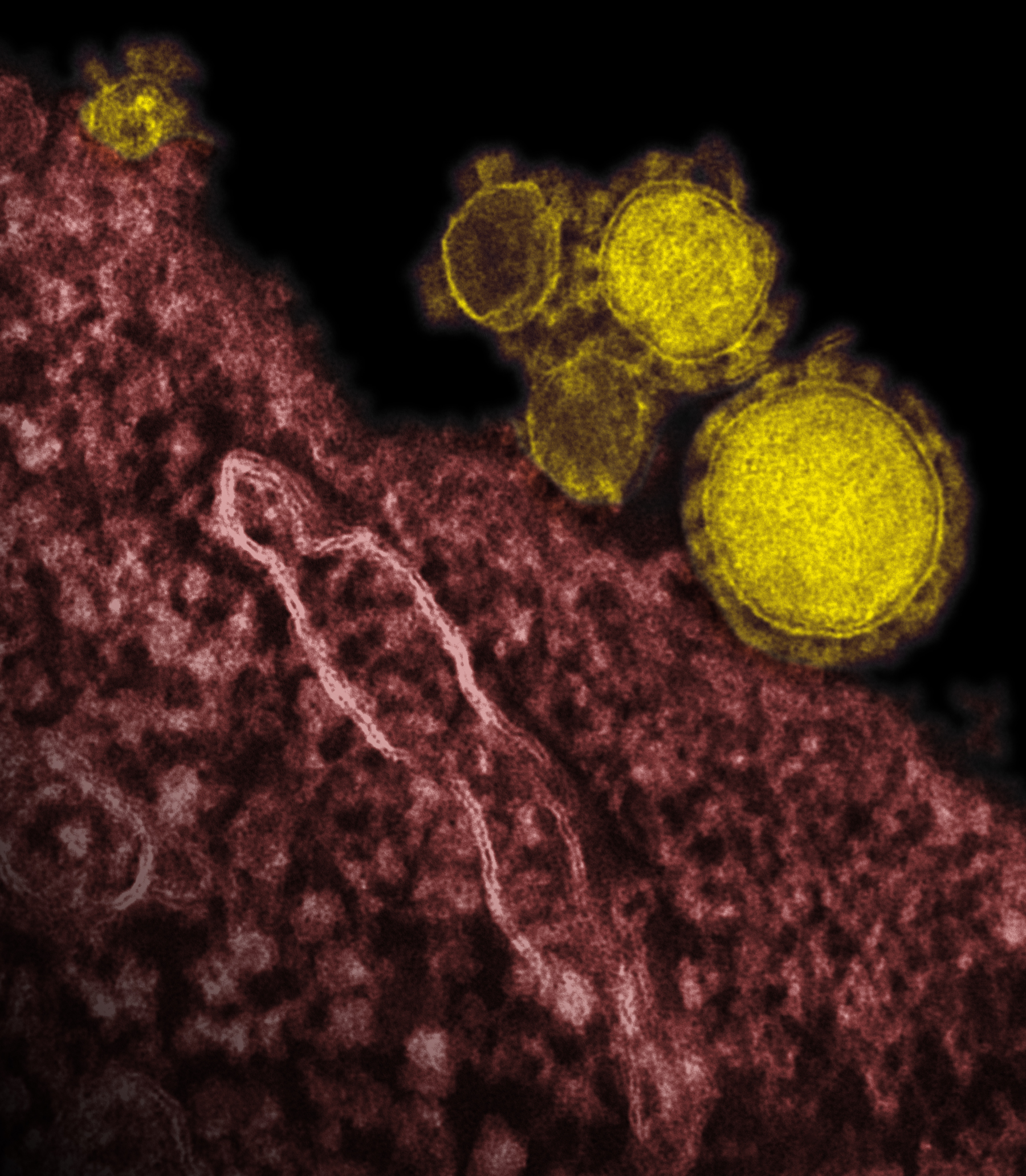MERS is a severe respiratory disease first identified in the Middle East. MERS stands for Middle East respiratory syndrome. The disease was discovered in 2012 after a patient in Saudi Arabia died of a then unknown respiratory illness. About 30 percent of people who have become ill with MERS have died of the disease.

Cases of MERS are known mainly from countries in and around the Arabian Peninsula, including Saudi Arabia, Qatar, Jordan, Oman, the United Arab Emirates, and Egypt. A number of cases have occurred in countries outside this region. However, these cases involved individuals who had traveled to the Middle East or been in contact with travelers from the Middle East.
In May 2015, an outbreak of MERS occurred in South Korea. Health officials believe the outbreak began with a person who had returned from the Middle East. Other people became infected in hospitals where the original patient was treated. Officials closed thousands of schools and quarantined more than 2,500 people in efforts to contain the outbreak, which ended in August 2015. Over the course of the outbreak, 186 people were infected and 36 people died.

Symptoms
of MERS include fever, cough, and shortness of breath. Infection may also be accompanied by gastrointestinal (stomach- and intestine-related) symptoms such as diarrhea. MERS infection may also result in pneumonia.
Severe disease occurs in the elderly, individuals with weakened immune systems , and patients with chronic (ongoing) diseases such as diabetes , cancer , and chronic lung disease. Respiratory failure may occur in severe cases. Some patients experience organ failure and a dangerous condition called septic shock.
Cause.
Scientists identified the cause of MERS as a previously unrecognized variety of coronavirus designated MERS-CoV. In human beings, coronaviruses are among the many viruses that cause common colds. Other types of coronaviruses cause serious or fatal disease in livestock. MERS-CoV is classified in the same family as the coronavirus that causes SARS, a respiratory disease first identified in China in 2003, and COVID-19, a respiratory disease also first identified in China, in late 2019.

Medical experts do not fully understand how MERS-CoV is transmitted. The virus can be transmitted from person to person, but usually only through close, sustained contact with an infected patient. In some cases, the source of infection has not been identified. These patients may have become infected after exposure to an animal or another source of the virus.
Origins.
MERS is a zoonosis, a disease that is transmitted from animals to human beings. MERS-CoV likely spread from bats to dromedary camels. The virus was then transmitted to human beings through close contact with infected camels. Researchers have isolated strains of viruses that are genetically similar to MERS-CoV from camels in Egypt, Oman, Qatar, and Saudi Arabia. The viruses can be detected in the nasal secretions of camels. They may also be found in camel urine and such camel products as unpasteurized milk and undercooked meat. Scientists have also found traces of MERS-CoV in air from a barn holding a camel owned by a patient.
Treatment.
No vaccines or drugs are available to prevent or cure MERS. Treatment of infected patients mainly involves relieving the symptoms of infection. To avoid the illness, people who have contact with camels should practice sound infection control. Such practices include hand washing and the wearing of facial protection and protective clothing.
